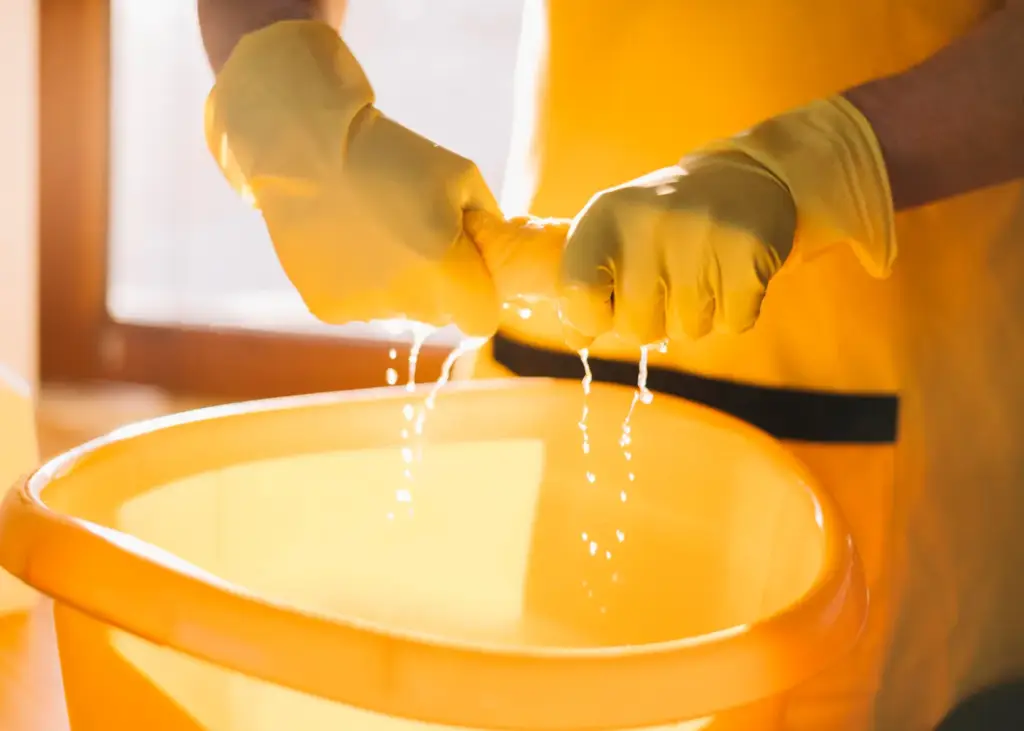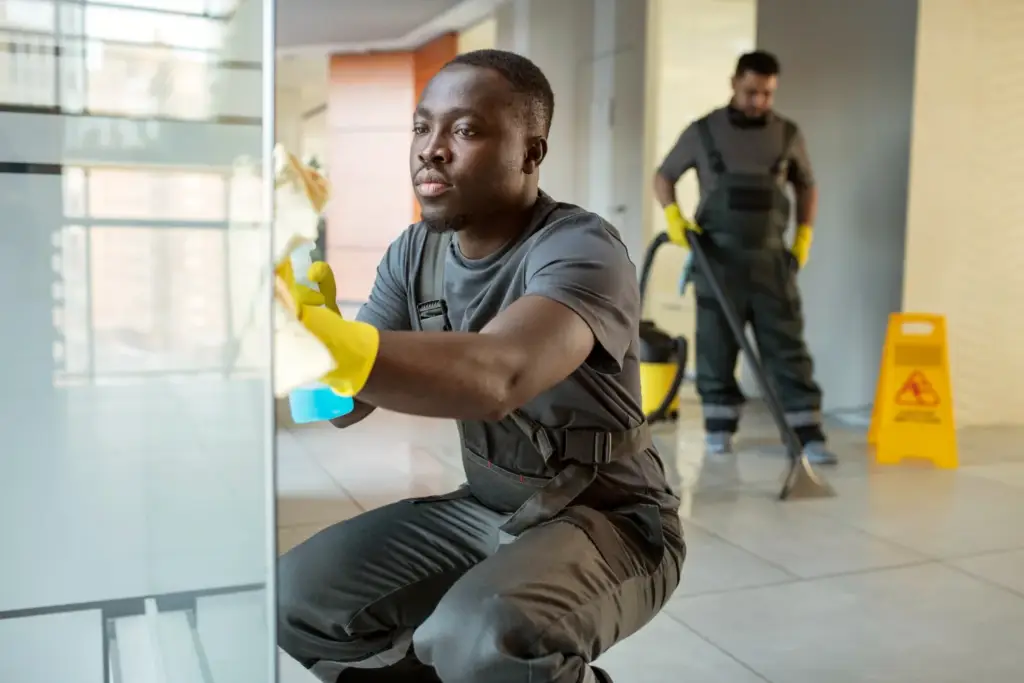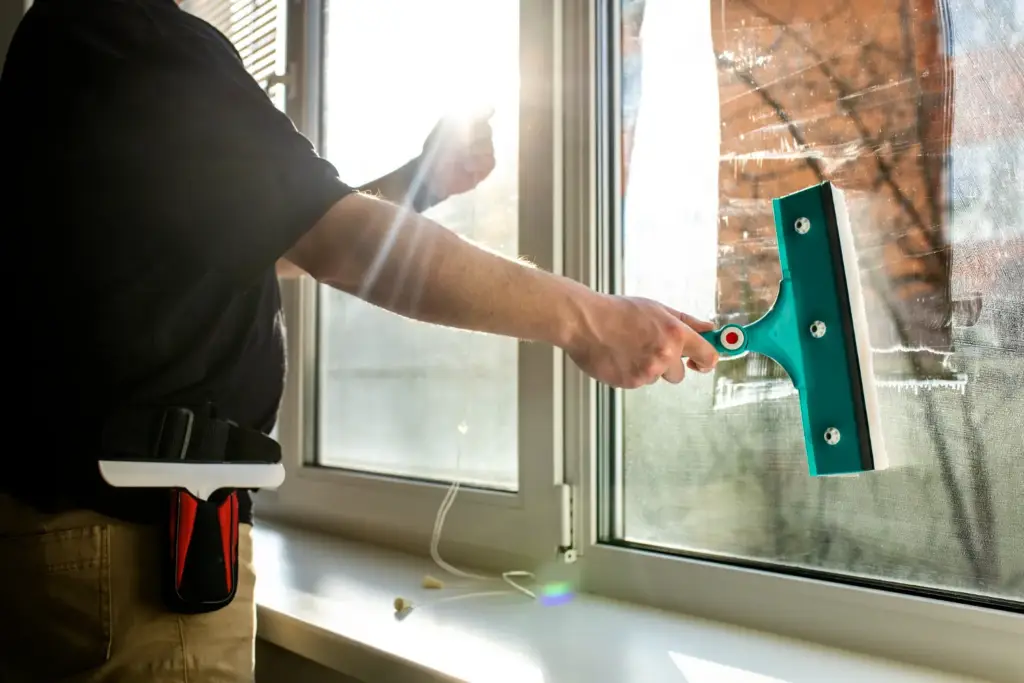Hard water stains can be a frustrating and unsightly problem in our homes, especially when it comes to our glass surfaces. These stubborn mineral deposits can leave a cloudy residue on our windows, shower doors, and even drinking glasses. Not only are they unpleasant to look at, but they can also be tough to remove. But fear not, because, in this blog, we will discuss the causes of hard water stains and provide you with effective solutions to restore clarity to your glass and make it shine like new again. Say goodbye to those pesky stains and hello to crystal clear glass!
Understanding Hard Water Stains
Hard water stains are caused by the presence of mineral deposits in water, such as calcium and magnesium. When hard water evaporates, it leaves behind these minerals, resulting in cloudy and unsightly stains on glass surfaces. The minerals adhere to the glass and can be difficult to remove, requiring specialized cleaning methods. Understanding the nature of hard water stains is the first step in effectively tackling them. In the next section, we will explore some effective methods for removing hard water stains and restoring clarity to your glass surfaces.

Effective Methods for Removing Hard Water Stains
Now that we understand the causes of hard water stains, let’s explore some effective methods for removing them and restoring clarity to your glass surfaces.
Vinegar Solution
Vinegar is a powerhouse when it comes to cleaning, and it works wonders on hard water stains. Create a solution of equal parts white vinegar and water. Spray or apply the solution directly to the stained areas and let it sit for a few minutes. Then, use a soft cloth or sponge to scrub away the stains. The acidity of vinegar helps to break down and dissolve the mineral deposits, leaving your glass clean and shiny.
Lemon Juice
Another natural remedy for hard water stains is lemon juice. The citric acid in lemons works as a natural cleaner and can effectively remove mineral deposits. Squeeze fresh lemon juice onto a cloth or sponge and gently scrub the stained areas. For more stubborn stains, let the lemon juice sit on the glass for a few minutes before scrubbing. Rinse thoroughly with water and enjoy the sparkling results.
Baking Soda Paste
Baking soda is a gentle yet powerful cleaner that can be used to tackle hard water stains. Create a paste by mixing baking soda with a small amount of water until it forms a thick consistency. Apply the paste to the stained areas and let it sit for about 15 minutes. Then, use a damp cloth or sponge to scrub the stains away. Rinse thoroughly with water and admire your stain-free glass.
Commercial Cleaners
If natural remedies aren’t cutting it, there are plenty of commercial cleaners available specifically formulated for removing hard water stains. Look for cleaners that contain ingredients like citric acid or oxalic acid, as these are known to be effective at breaking down mineral deposits. Be sure to follow the instructions on the product and use proper ventilation when using these cleaners.

Preventive Measures to Minimize Hard Water Stains
Now that we’ve discussed effective methods for removing hard water stains, let’s shift our focus to preventive measures. By taking proactive steps, you can minimize the occurrence of hard water stains and keep your glass surfaces looking clean and clear for longer. Here are some preventive measures you can implement:
Regular Cleaning
One of the best ways to prevent hard water stains is to clean your glass surfaces regularly. By regularly removing any mineral buildup, you can prevent the stains from becoming stubborn and difficult to remove. Use a mild, non-abrasive cleaner and a soft cloth or sponge to wipe down your glass surfaces. Make sure to dry them thoroughly to minimize the chances of mineral deposits forming.
Water Softening System
Consider installing a water-softening system in your home. These systems work by removing the minerals from the water before it flows through your pipes. By reducing the mineral content in your water supply, you can significantly minimize the formation of hard water stains on your glass surfaces. Consult with a professional plumber to determine the best water-softening system for your needs.
Squeegee After Showering
One common area for hard water stains is shower doors. After each shower, use a squeegee to remove any excess water from the doors. This simple step can prevent water droplets from evaporating and leaving behind mineral deposits. It takes just a few seconds and can make a big difference in preventing stains.
Use a Water Filter
Another preventive measure you can take is to use a water filter on your faucets. These filters can help reduce the mineral content in the water, resulting in fewer hard water stains. There are various types of filters available, ranging from faucet attachments to whole-house filtration systems. Choose one that suits your needs and budget.
Avoid Harsh Cleaners
When cleaning your glass surfaces, avoid using harsh cleaners that can damage the glass or strip away any protective coatings. Stick to mild, non-abrasive cleaners and follow the manufacturer’s instructions. Harsh cleaners can also leave behind residue that attracts more mineral deposits, making your efforts to prevent stains ineffective.
Preventive Measures to Keep Your Glass Sparkling Clean
Keeping your glass surfaces sparkling clean and free from hard water stains requires some preventive measures. By following these simple steps, you can maintain the clarity and beauty of your glass for longer:
Regular Cleaning
Make it a habit to clean your glass surfaces regularly to prevent mineral buildup. Use a mild, non-abrasive cleaner and a soft cloth or sponge to wipe down your glass. Dry them thoroughly to minimize the chances of mineral deposits forming.

Water Softening System
Consider installing a water softening system in your home to reduce the mineral content in your water supply. This can significantly minimize the formation of hard water stains on your glass surfaces.
Squeegee After Showering
After each shower, use a squeegee to remove any excess water from your shower doors. This simple step prevents water droplets from evaporating and leaving behind mineral deposits.
Use a Water Filter
Using a water filter on your faucets can help reduce the mineral content in the water, resulting in fewer hard water stains. Choose one that suits your needs and budget.
Avoid Harsh Cleaners
Stick to mild, non-abrasive cleaners when cleaning your glass surfaces. Harsh cleaners can damage the glass or strip away any protective coatings, making your efforts to prevent stains ineffective.
When to Hire Experts for Hard Water Stain Removal
When it comes to hard water stains, sometimes the DIY methods just don’t cut it. If you’ve tried all the remedies and your glass surfaces still have stubborn stains, it may be time to call in the professionals. Here are some signs that it’s time to seek professional help for hard water stain removal:
- The stains are deeply ingrained and won’t budge no matter how much you scrub.
- You’ve tried multiple cleaning methods without success.
- The stains are causing damage to your glass surfaces.
- You don’t have the time or energy to tackle the problem yourself.
In Conclusion
We’ve explored the frustrating world of hard water stains and provided effective solutions for restoring clarity to your glass surfaces. From natural remedies like vinegar and lemon juice to preventive measures like regular cleaning and water-softening systems, we’ve covered it all. But remember, if all else fails and those stubborn stains persist, don’t hesitate to contact us for hard water stain removal services. Say goodbye to cloudy glass and hello to crystal-clear windows, shower doors, and drinking glasses!


